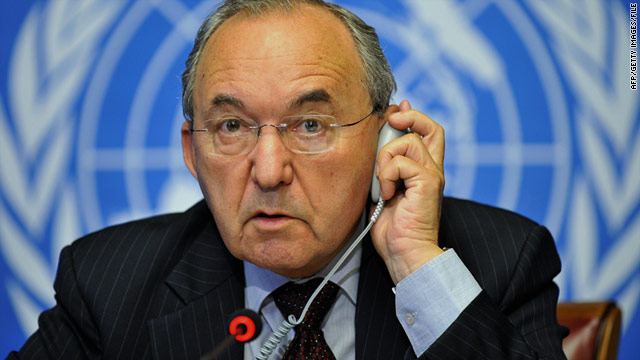By Eileen Gould
Impunity Watch Reporter, Middle East
SANAA, Yemen – Amnesty International released a report today on the human rights violations that have occurred over the last few months in Yemen. The report discusses the recent attacks on and repression of protesters, who do not support the rule of President Ali Abdullah Saleh and who strive to eliminate the corruption and unemployment.
The most violent of these attacks occurred on March 18, when snipers fired on protesters in Sana’a, killing fifty-two people and injuring hundreds more. Protesters have since called this incident “Bloody Friday”. Witnesses stated that most of those who were killed were shot in the head or the chest and died on site.
According to Amnesty, Yemen’s response to these attacks is “woefully inadequate”. Although the government stated that it would investigate these attacks (and others), little information has been made available to the public as to whether any police force members are under being investigated. Furthermore, the impartiality and independence of the investigating authorities has been called into question.
As these attacks continue, Amnesty expressed its concern for the torture, unlawful killing, and other human rights violations occurring in Yemen. In addition, supporters of secession in the southern portion of the country have been held without trial, are unable to challenge the legality of their detentions, and are forbidden from speaking with their families.
It is the belief of this human rights organization that Yemen must deal with its “heavy legacy of impunity”. The government should ensure that security forces do not use force against demonstrators who do not threaten their lives or the lives of others. It should also provide detainees with access to their lawyers and families and should take steps to make sure that peaceful protesters are not tortured.
Amnesty made several recommendations to the international community, in particular, that authorities must be held responsible for the recent attacks on protesters, ninety-four of whom have been killed to date. It suggested that President Saleh not be granted immunity by way of a political deal for these incidents.
The organization further seeks the suspension of the sale and transfer of weapons and arms to the security forces in Yemen, as they may be used in attempts to control the demonstrations. The United States is the largest supplier of military and security equipment to Yemen. Other countries involved in the sale of arms to Yemen include Bulgaria, the Czech Republic, Germany, Italy, the Russian Federation, France, Turkey, and the Ukraine.
For more information please see:
Amnesty International – Moment of Truth for Yemen – 05 April 2011
Amnesty International USA – Amnesty International Warns Against Political Deals to Give President Immunity for Brutality Against Protesters in Exchange for Handing Over Power – 05 April 2011
Monsters & Critics – Amnesty International urges external inquiry into Yemen – 06 April 2011

